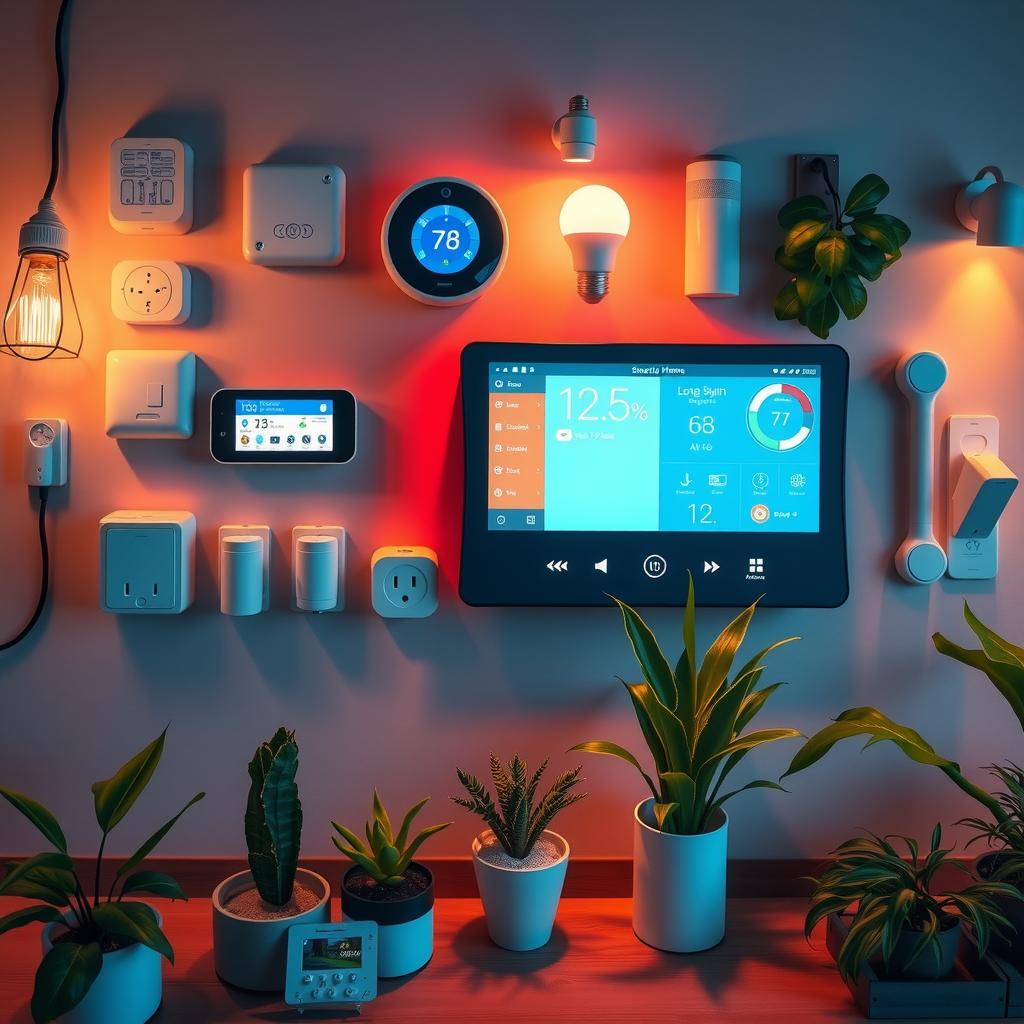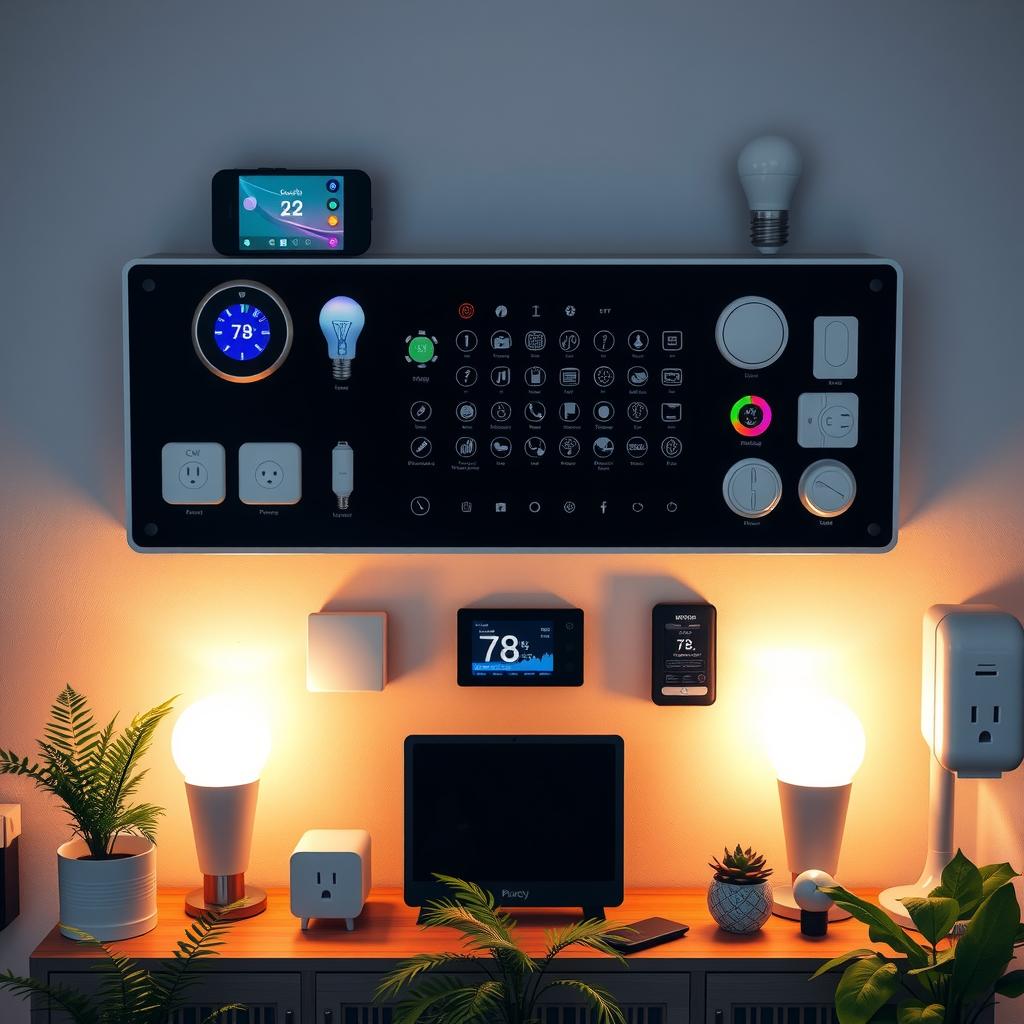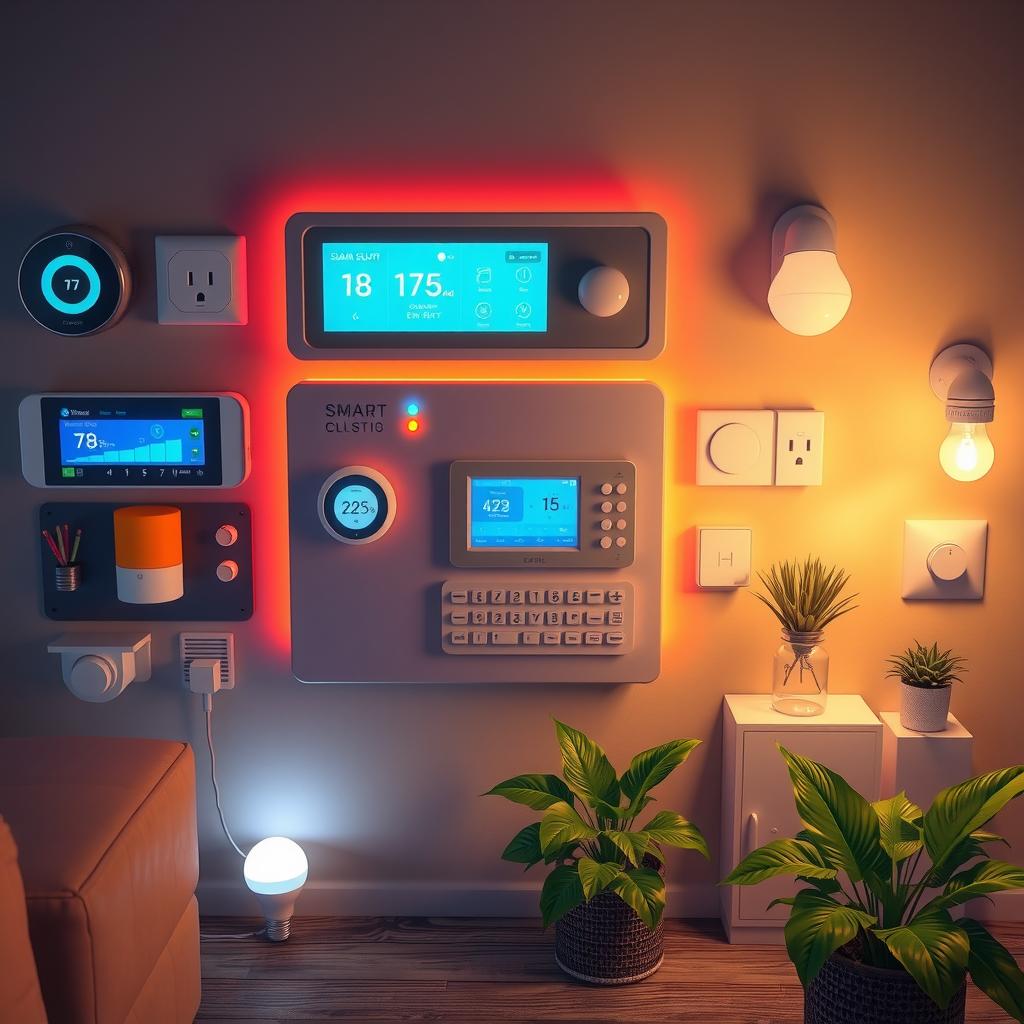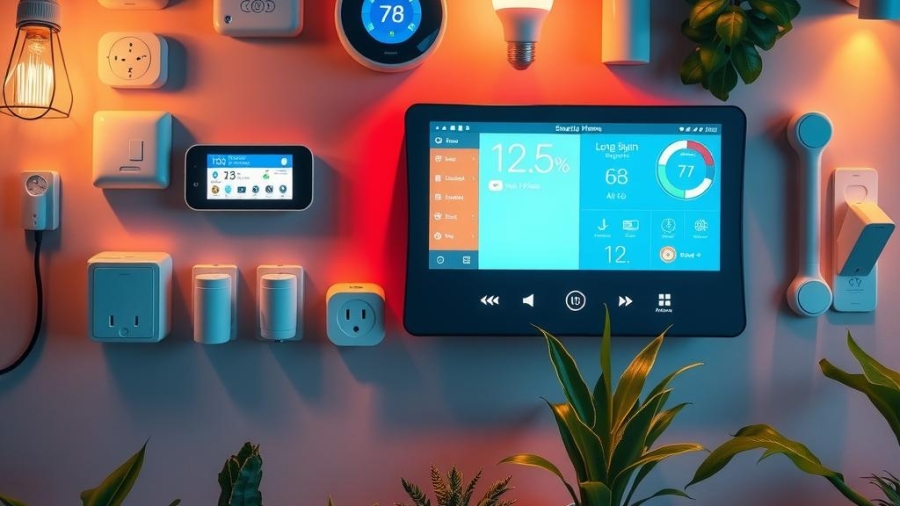In a world increasingly driven by technology, the way we manage energy in our homes is undergoing a profound transformation. Have you ever wondered how much energy your household truly consumes and if there are smarter ways to optimize that usage? Enter smart home energy management systems—innovative solutions designed to enhance energy efficiency, streamline home automation, and promote sustainable living. As homeowners become more conscious of their environmental footprint and seek opportunities for significant cost savings, these systems have gained popularity, offering an elegant blend of convenience and sustainability.
This blog post delves into comprehensive reviews of various smart home energy management systems that stand at the forefront of this technological revolution. By examining user experiences, system performance, and features available on the market today, readers will gain valuable insights into which solutions best align with their unique needs. Whether it’s monitoring real-time energy consumption or automating appliances based on peak usage times, these systems promise not only to simplify daily routines but also contribute significantly towards reducing carbon footprints.
The core value lies in empowering users with knowledge—by understanding how different technologies function together within a smart ecosystem, individuals can make informed decisions about integrating such sustainability solutions into their homes. Each review aims to highlight key aspects that influence overall effectiveness while considering factors like ease of installation, compatibility with existing devices, and potential for future upgrades.
As we embark on this exploration of smart home technology’s impact on energy management, readers will discover answers to pressing questions surrounding efficiency gains and practical applications in everyday life. With each system evaluated through critical lenses such as user reviews and expert assessments, this guide ultimately seeks to illuminate pathways toward enhanced comfort without sacrificing ecological responsibility. Join us as we navigate through the landscape of intelligent energy solutions tailored for modern households—a journey where innovation meets sustainability head-on!

Key Points:
-
Integration of Smart Technology: The rise of smart home technologies offers innovative solutions for optimizing energy management. These systems leverage advanced features that allow homeowners to monitor and control their energy usage effortlessly, making it easier to adopt eco-friendly practices while maintaining comfort.
-
User-Centric Performance Insights: Comprehensive reviews highlight user feedback on various energy management systems, revealing insights into their functionality and reliability. By analyzing real-world experiences, homeowners can understand which solutions provide the best balance between cost savings and enhanced daily life.
-
Commitment to Sustainability Solutions: As consumers embrace sustainability in their lifestyles, understanding available options becomes crucial. From intelligent thermostats to automated lighting controls, these innovations significantly reduce unnecessary energy consumption, empowering homeowners to make informed decisions that align with broader environmental goals.

Understanding Smart Home Technologies: The Intersection of Comfort and Efficiency
Enhancing Living Spaces Through Smart Automation
In today’s rapidly evolving technological landscape, smart home technologies are becoming increasingly integral to modern living. These systems not only aim to provide convenience but also significantly enhance energy efficiency without sacrificing comfort. By leveraging sophisticated home automation, homeowners can optimize their energy consumption through a variety of interconnected devices that work seamlessly together. For instance, smart thermostats allow users to monitor and adjust heating and cooling settings remotely, ensuring that homes remain at an optimal temperature while minimizing unnecessary energy expenditure. Such innovations in energy management lead to noticeable reductions in monthly utility bills as well as lower overall carbon footprints.
Moreover, the integration of sensors within smart homes enables real-time tracking of energy use across various appliances. This data empowers homeowners to make informed decisions about their habits and encourages behavioral changes that promote sustainability solutions. For example, intelligent lighting systems can automatically adjust based on occupancy or natural light levels, ensuring lights are only used when necessary—thereby reducing excess energy consumption during peak hours.
User reviews highlight the growing acceptance and appreciation for these advancements; many report experiencing enhanced comfort alongside significant cost savings thanks to automated systems tailored specifically for their needs. As technology continues evolving, it is vital for users to stay informed about system performance capabilities including compatibility with existing setups or future upgrades they may wish to consider.
Additionally, manufacturers are consistently striving towards developing smarter solutions that integrate artificial intelligence (AI) into everyday tasks—allowing these systems not just respond reactively but also proactively manage resources efficiently over time. This raises the bar for what it means to live sustainably while enjoying all the comforts a home has to offer.
Ultimately, embracing smart technology is more than just a trend; it’s a lifestyle choice aimed at achieving balance between personal comfort and environmental responsibility. As consumers become increasingly aware of their impact on the planet coupled with rising energy costs globally, investing in smart home technologies becomes an appealing option worth exploring further—offering both immediate benefits as well as long-term viability in creating eco-friendly living spaces that contribute positively toward sustainable development goals.

Understanding the Importance of Energy Management Systems
A Pathway to Sustainable Living
In an era where sustainability is paramount, energy management systems have emerged as vital tools for optimizing energy consumption while promoting eco-friendly practices. These systems leverage smart technology to monitor and control energy use, enabling homeowners and businesses alike to enhance their overall energy efficiency. By integrating home automation features, users can seamlessly manage their power usage from a centralized platform. The effectiveness of these systems is often reflected in user reviews that highlight significant cost savings and reduced carbon footprints, making them an appealing choice for those committed to sustainable living.
Key Features of Leading Energy Management Systems
Enhancing User Experience
When evaluating top-tier energy management solutions, several key features stand out. Firstly, the ability to track real-time energy consumption plays a crucial role in understanding how different appliances contribute to overall usage patterns. This data empowers users by providing insights that facilitate informed decisions about energy-saving behaviors. Furthermore, many advanced systems incorporate predictive analytics; this means they can anticipate peak demand periods and adjust settings accordingly—providing both comfort and efficiency without compromising on performance or convenience.
Moreover, compatibility with existing infrastructure enhances user adoption rates significantly; many households already possess smart devices that can be integrated into these new platforms effortlessly. This interoperability not only simplifies installation but also encourages more extensive utilization of available functionalities—thus maximizing the potential benefits derived from these cutting-edge technologies.
Evaluating Performance through User Feedback
Insights into System Efficiency
User feedback serves as a cornerstone for assessing the performance of various sustainability solutions within energy management ecosystems. When analyzing reviews from diverse demographics—including eco-conscious families and tech-savvy individuals—it becomes evident that satisfaction levels are closely tied with tangible results such as noticeable reductions in utility costs alongside enhanced operational ease provided by intuitive interfaces.
Additionally, transparency regarding system updates ensures ongoing improvements based on user experiences; higher-rated products frequently offer robust customer support services which further solidify end-user confidence in long-term commitment towards achieving optimal performance outcomes over time. Ultimately, thorough evaluations grounded in actual usage scenarios are indispensable resources when discerning which options may yield maximum returns on investment concerning both financial savings and environmental impact.
The Future of Energy Management: Trends & Innovations
Charting New Territory in Sustainability Solutions
Looking ahead at emerging trends within the realm of home automation, it becomes clear that innovation will continue driving advancements in energy management capabilities forward at unprecedented speeds. Concepts like machine learning algorithms promise even greater accuracy when predicting user behavior patterns—a leap towards hyper-personalized experiences tailored specifically around individual needs rather than one-size-fits-all approaches prevalent today.
Furthermore, increased collaboration between manufacturers could lead toward unified platforms capable of managing multiple aspects—from heating/cooling controls right down through lighting schemes—all under one umbrella ensuring seamless integration across devices while elevating overall efficacy levels significantly beyond what has traditionally been achievable independently thus paving roads toward heightened awareness surrounding responsible resource stewardship among consumers worldwide ultimately transforming how society interacts with its environment altogether!
User Experiences: The Real Benefits of Smart Solutions
Harnessing the Power of Smart Energy Management Systems
In recent years, smart home technologies have revolutionized how individuals manage their energy consumption and enhance their overall living experience. Users report significant improvements in energy efficiency, primarily due to the integration of smart energy management systems. These systems allow homeowners to monitor and control their energy usage through mobile applications or voice-activated devices, providing real-time insights into energy consumption patterns. Feedback from users often highlights the ease with which they can identify peak usage times or inefficient appliances, leading them to make informed adjustments that contribute not only to reduced bills but also support broader sustainability goals.
Insights on Performance and Reliability from Users
The performance and reliability of these smart solutions play a crucial role in shaping user experiences. Many individuals have expressed satisfaction with how seamlessly these systems integrate into existing home automation setups, creating a cohesive ecosystem that enhances daily life. For instance, one user noted that since implementing a smart thermostat linked with other household devices, they could maintain optimal temperatures while reducing unnecessary heating during off-peak hours—demonstrating tangible cost savings while promoting an environmentally friendly approach to home climate control. These firsthand accounts emphasize the importance of system compatibility and reliability; when users feel they can trust their devices to function correctly without constant monitoring or troubleshooting, it significantly boosts their confidence in adopting further smart technology.
Cost Savings Through Enhanced Energy Management
A critical aspect highlighted by many users is the potential for substantial cost savings achieved via more effective energy management strategies enabled by smart solutions. By utilizing data analytics provided by these systems, consumers can better understand where most of their energy consumption occurs and adjust behaviors accordingly—such as programming lights or appliances to operate during lower-cost electricity periods. One notable review mentioned an impressive reduction in monthly utility costs after merely two months of using such a system; this aligns well with numerous studies showing that automated controls lead directly to decreased operational expenses over time. The correlation between adopting modern technologies for managing energy needs not only presents financial benefits but also encourages responsible environmental practices among conscientious homeowners.
Sustainability Solutions Driven by User Engagement
The shift towards sustainable living has seen many users embrace innovative approaches facilitated by advanced technology designed for everyday use at home. Reviews consistently underscore how integrating sustainable practices within personal environments results from engaging experiences offered through intuitive interfaces provided by various platforms focused on sustainability solutions. Homeowners participating in community forums frequently share tips about maximizing device features—like optimizing solar panel output combined with battery storage—to ensure minimal reliance on non-renewable resources while fostering communal values centered around eco-friendliness and collective responsibility toward planet preservation efforts.
In conclusion, user testimonials reveal compelling evidence regarding the effectiveness and advantages found within contemporary smart energy management frameworks across households today—the blend of enhanced performance metrics coupled with significant economic incentives positions these innovations favorably within consumer markets aiming for greater efficiency alongside sustainability aspirations.
Comprehensive Reviews of Smart Home Energy Management Systems: Optimize Your Energy Use Today
The integration of smart home technologies has revolutionized how homeowners manage their energy consumption. These advanced energy management systems provide users with the tools to optimize their energy efficiency, allowing for seamless control over various appliances and devices within the home. From intelligent thermostats that learn user preferences to automated lighting controls that adjust based on occupancy, these solutions not only enhance comfort but also contribute significantly to sustainability efforts. The ability to monitor and adjust energy usage in real-time empowers homeowners to make informed decisions, ultimately leading to reduced utility bills and a lower carbon footprint.
User reviews play a critical role in evaluating the performance of these smart systems. Many consumers have reported significant cost savings after integrating such technologies into their homes, highlighting features like remote access through mobile apps and compatibility with existing devices as key benefits. This feedback showcases how home automation can simplify everyday life while promoting responsible energy use. As more people shift toward eco-friendly practices, understanding the effectiveness of different products becomes essential for making educated choices about which solutions best fit individual needs.
Moreover, exploring various available options reveals a wealth of innovative products designed specifically for enhancing energy consumption management. Whether it’s utilizing sensors that detect when rooms are unoccupied or scheduling appliances during off-peak hours, each system offers unique capabilities tailored towards optimizing resource use without compromising convenience. By delving into comprehensive reviews that assess functionality and reliability alongside user satisfaction, readers gain valuable insights into creating sustainable living environments while embracing modern technology.
FAQs:
Q: How do smart home energy management systems work?
A: Smart home energy management systems utilize advanced technology to monitor and control household energy consumption through connected devices such as thermostats, lights, and appliances.
Q: Can I save money by using an energy management system?
A: Yes! Many users report significant cost savings due to better monitoring of usage patterns and optimizing appliance operation times based on utility rates.
Q: Are there any specific features I should look for in an effective system?
A: Look for features like real-time monitoring capabilities, remote access via mobile apps, compatibility with other smart devices in your home, and customizable settings that cater to your lifestyle preferences.
